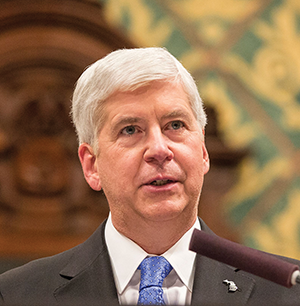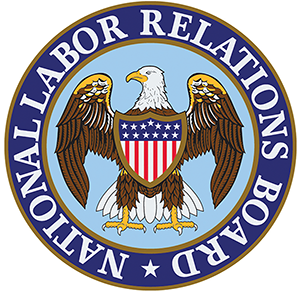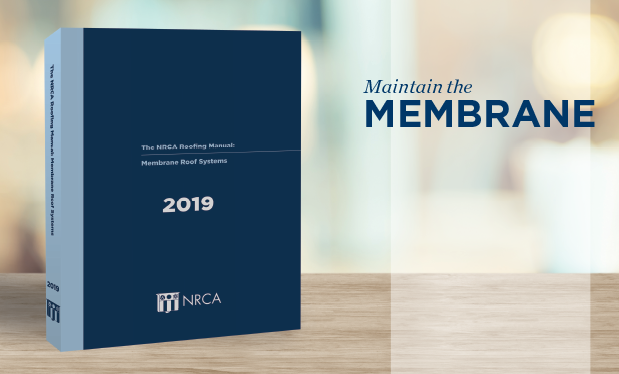NLRB rescinds call for public input regarding bargaining policy
The National Labor Relations Board (NLRB) rescinded its call Dec. 14, 2018, for public input regarding what unions must do to establish they have a full bargaining relationship with a construction company based on a pre-hire agreement, according to Bloomberg Law.
As a result, key precedents affecting businesses and unions remain in place. A construction company can withdraw from a pre-hire relationship when a labor contract expires, but a union with bargaining rights under federal labor laws cannot be ousted unless it loses the support of a majority of the covered workers. NLRB could revisit the issue if it gets a similar case.
NLRB says the issue is moot after the International Association of Heat and Frost Insulators and Allied Workers said in October 2018 it no longer wants to use its limited resources litigating the case it brought against Loshaw Thermal Technology in 2015.
Investment opportunity may reach $29 trillion for urban green building

|
A recent report from the International Finance Corp. (IFC), Washington, D.C., a sister organization of the World Bank, shows making cities more environmentally friendly may offer a $29.4 trillion investment opportunity, according to Bloomberg Law.
Much of the investment needs—about $24.7 trillion through 2029—will be in new building construction or retrofits of existing structures. Other "green" investments will involve electric vehicles, water and waste management, and infrastructure.
The largest amount of green capital likely will be focused on the East Asia Pacific region, including China, Indonesia and the Philippines. Latin America and the Caribbean are expected to take a distant second place.
As scientists say the world must invest $2.4 trillion in clean energy every year through 2035 and cut coal-fired power to almost nothing by 2050 to avoid catastrophic effects, national governments vary in their commitments to battling climate change. IFC reports city regulators' decisions sometimes can more immediately affect people compared with national or international policies.
The report also says though investment in urban infrastructure for developing countries typically is funded by the public sector, financing from private sources will be needed. According to the report: "Efforts to successfully limit global warming hinge on cities. More than half the global population lives in urban areas, and this share will continue to rise over the next 30 years. Crucially, cities consume much of the world's energy and produce more than 70 percent of global carbon emissions."
Michigan governor signs bills reducing sick leave, minimum wage increases

|
Gov. Rick Snyder (R-Mich.) signed two bills Dec. 14, 2018, reducing voter-initiated increases to the state minimum wage and employer-paid sick time.
The governor's actions followed an unprecedented maneuver by the Republican-controlled Senate, which adopted voter-initiated bills increasing sick leave and minimum wage to prevent the issues from appearing on the ballot during elections held Nov. 6, 2018. In doing so, the Senate was able to amend the proposals after the election with a simple majority instead of a three-quarters majority.
The initial minimum wage proposal would have raised the state's base hourly wage from $9.25 to $12 by 2022. Instead, minimum wage will increase to $12.05 by 2030.
The initial paid sick leave would have permitted workers to accrue one hour for every 30 hours worked and only exempted employers with five or fewer employees. Instead, workers at companies with more than 50 employees will accrue one hour of sick leave for every 35 hours worked for a maximum of 40 hours per year.
The passage of the amended bills was praised by the business community and Michigan Chamber of Commerce. The action received criticism from worker advocacy groups, which accused the governor and the Senate of demonstrating disregard for Michigan voters.
New NLRB plan aims to speed up labor dispute processing

|
The National Labor Relations Board (NLRB) released a strategic plan Dec. 7, 2018, that aims for a 20 percent reduction by 2022 in the time it typically takes to give a decision in workplace disputes between employers and workers, according to Bloomberg Law.
Under direction of NLRB General Counsel Peter Robb, the board's 26 regional offices will incorporate new protocols meant to decrease the time between receiving a charge and disposing a case by 5 percent during each of the next four years. Robb says though the number of total cases during the past few decades has fallen, processing times have nearly tripled.
Robb eliminated an older system that prioritized cases deemed to have the most significant effects while allowing longer deadlines for less urgent disputes. Additionally, the performance of regional office directors will be evaluated based on their offices' processing times.
Critics of the plan say the changes could encourage speed without considering the potential significance of cases, thereby hindering enforcement of federal labor laws. Supporters say the changes will improve agency performance.
Some NLRB employees expressed concern the new policies will give unfair advantages to businesses, which often are more equipped to defend against or prosecute an unfair labor practice charge than union or individual employees, and an NLRB lawyer predicts cases with violations will be thrown out.
Some common situations that can prolong NLRB cases are a party's failure to produce evidence or when a worker or union files additional charges because of an employer's court of conduct over time.
Jerry Hunter, who served as NLRB general counsel from 1989 to 1993, believes the changes are sensible.
"In a sense, I can see why the career staff, particularly lawyers and investigators, might be saying it's heavy lifting to require us to meet this reduction goal," he says. "But I'm not sympathetic because they're looking at the much longer periods—under the previous system, there was no distinction among cases, and most of the regions found a way to get those cases done in a quality manner."
IRS releases 2019 standard mileage rates
The IRS has announced the 2019 optional standard mileage rates for calculating deductible costs associated with using an automobile for business, charitable, medical or moving purposes.
As of Jan. 1, 2019, the standard mileage rate for the use of a car, van, pickup or panel truck is 58 cents per mile for business miles driven. The standard mileage rate is 20 cents per mile driven for medical or moving purposes and 14 cents per mile driven in service to a charitable organization.
During 2018, the business mileage rate was 54.5 cents and the medical and moving rate was 18 cents.
It is important to note that under the Tax Cuts and Jobs Act of 2017, taxpayers cannot claim a miscellaneous itemized deduction for unreimbursed employee travel expenses. Except for members of the Armed Forces on active duty moving under orders to a permanent change of station, taxpayers also cannot claim a deduction for moving expenses. For more information, go to www.irs.gov/pub/irs-drop/n-19-02.pdf.
BLS report shows workplace fatalities decreased during 2017
A recent Bureau of Labor Statistics National Census of Fatal Occupational Injuries report shows there were 43 fewer workplace fatalities in 2017 than the previous year, according to www.osha.gov. The fatal injury rate also decreased from 3.6 percent in 2016 to 3.5 percent in 2017.
"While today's report shows a decline in the number of workplace fatalities, the loss of even one worker is too many," says Loren Sweatt, acting assistant secretary for the Occupational Safety and Health Administration (OSHA). "Through comprehensive enforcement and compliance assistance that includes educating job creators about their responsibilities under the law, and providing robust education opportunities to workers, OSHA is committed to ensuring the health and safety of the American workforce."
Crane-related workplace fatalities and fatal occupational injuries in the private manufacturing industry and wholesale trade industries also decreased during 2017, reaching their lowest points since the census started in 2003.
The number of unintentional overdoses resulting from the nonmedical use of drugs or alcohol while at work increased by 25 percent, marking the fifth consecutive year overdose deaths rose by at least 25 percent.
Lack of immigration enforcement resources leads to employer uncertainty

|
Immigration and Customs Enforcement (ICE) completed 1,360 audits of companies' I-9 employment verification forms, which are meant to ensure employers don't hire unauthorized immigrants, during fiscal year 2017 and is on track to launch 8,500 audits during fiscal year 2018, according to Bloomberg Law.
However, despite the significant increase in work-site enforcement, the manpower and funding needed to complete the audits and manage legal challenges has not increased accordingly. As of December 2018, ICE had more than 5,200 workplace audits that could create a backlog. The process to impose fines on employers already takes months, and if backlogs develop, that timeline could extend even longer.
For some companies, that could mean being able to put off sanctions for months or even years. For other companies, including some that unknowingly hire unauthorized immigrants, it could mean months or years of uncertainty as the threat of potentially high fines causes concern.
ICE reportedly is exploring ways to expand capacity, such as adding more than 60 contract auditors and trying to streamline the audit process.
Additionally, the Justice Department's Office of the Chief Administrative Hearing Officer, which hears employers' challenges to fines ICE imposes for I-9 violations, currently does not have a permanent administrative law judge (ALJ) to hear such challenges; the position has been vacant since May 2017. The agency reportedly is looking to fill ALJ positions.
Funding to expand ICE's resources reportedly could face more challenges this year under Democrats' control of the House of Representatives. Some lawmakers are calling for an end to ICE altogether.



